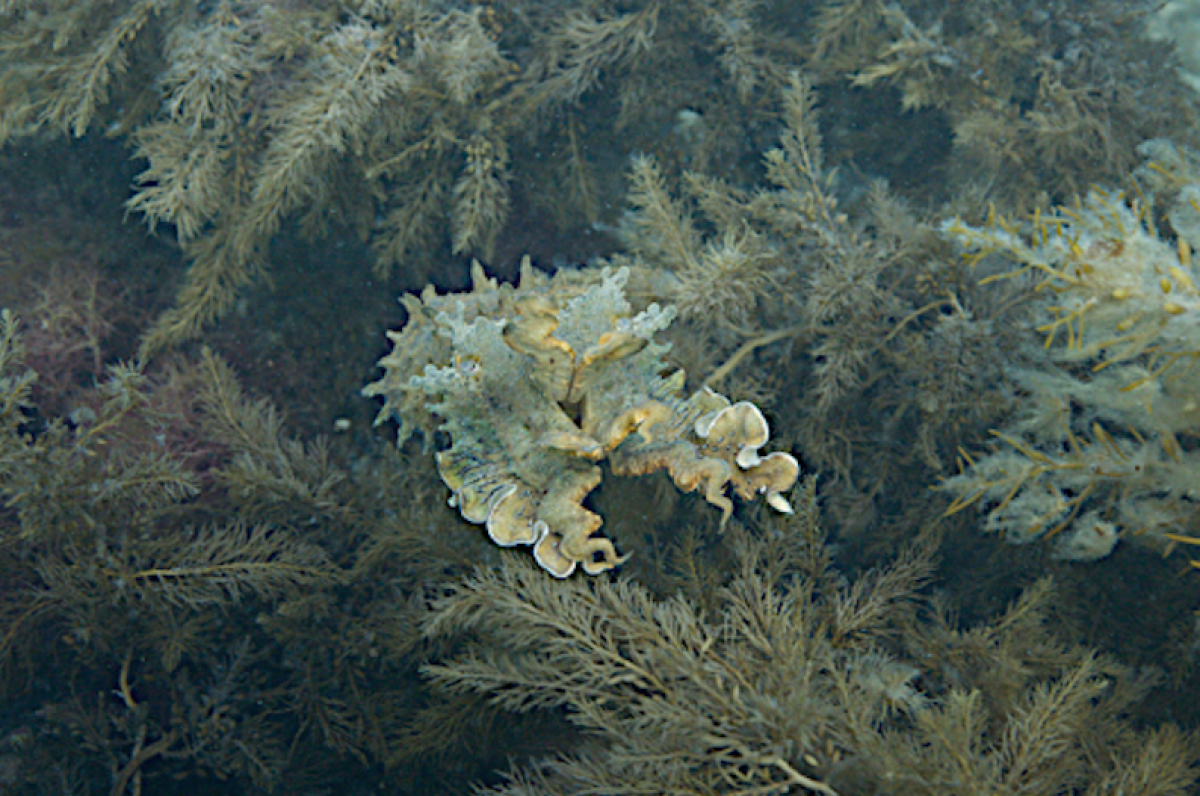
The U.S. military funding research on octopus skin may sound like an exceptional situation. However, it's not; various branches of the military conduct a wide range of scientific research in their own facilities and also fund the experiments of independent scientists like Rob Shepherd, a professor and robotics hardware designer at Cornell University.
The U.S. Army and Air Force both funded his latest work, which tried to replicate the way an octopus's skin changes texture. The results of his and his collaborators' research was published on Thursday in Science.
In theory, Shepherd said, this kind of work could also be used on a plane's wings to manipulate the drag it experiences.
The military's interest in octopus skin stems from how technologically advanced it is. "It's one of the most highly-evolved sensorimotor control systems," a U.S. Army Research Laboratory statement provided to Newsweek by spokesperson T'Jae Ellis read. "Understanding the underlying physical mechanisms could lead to future artificial skins, soft robots, or adaptive networks, all an interest to the U.S. Army."
Shepherd explains that octopus skin has several intriguing properties. "Octopuses are predators, but they're very vulnerable to attack because they're totally soft. So they have to do a great job of blending into the environment and not being seen," Shepherd said. Some will also change their texture to attract mates.

The work will probably not lead to super high-tech camo pants made of synthetic cephalopod skin. "We have modest approximations of what an octopus can do. We're nowhere near an octopus," Shepherd cautioned.
However, there are plenty of other ways it could be used. Virtual reality environments, for example. It could also be used to ship three-dimensional things as a flat object and then "reinflate" them once they reach their destination. The technology could also enhance assistive robots. "A person that has limited sight who experiences more through hearing and touch and then display information both through sound and through touch would, I think, find this useful," Shepherd said.
And—obviously—having this skin could lead to a better octopus robot. Shepherd and other researchers have already worked out ways to mimic how octopuses use their skin to hide. If all of these tools can come together, then we could have a robot that mimics an octopus well enough for biologists to get close to real ones. ("Octopuses are not exactly cooperative," Shepherd noted.)
But unlike a real octopus, this synthetic skin can only do one thing. For now, it can only go from a flat surface to a textured surface. It can't shift between textures like a real octopus could, though Shepherd and others are working on making it more dynamic.
"We can change the amplitude of the texture, we can go from smooth to very rough and states in between, but the shape of the roughness is prescribed," Shepherd explained. "It probably could fool an octopus, but it would only be fooling it in the same way every time."
Uncommon Knowledge
Newsweek is committed to challenging conventional wisdom and finding connections in the search for common ground.
Newsweek is committed to challenging conventional wisdom and finding connections in the search for common ground.
About the writer
Kate Sheridan is a science writer. She's previously written for STAT, Hakai Magazine, the Montreal Gazette, and other digital and ... Read more
To read how Newsweek uses AI as a newsroom tool, Click here.








